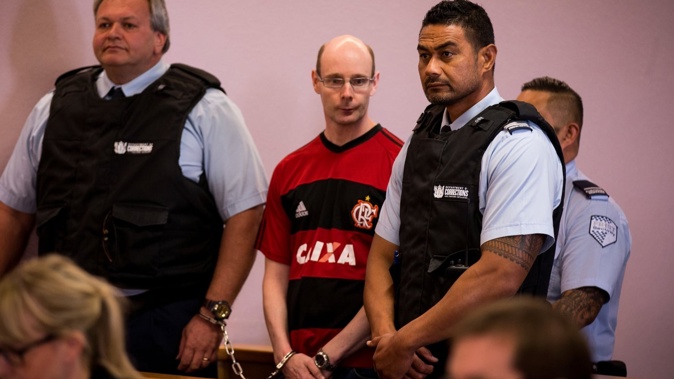
High-profile murderer and child sex offender Phillip John Smith has lost a legal battle over whether preventing men from having sex at a special prison unit for child sex abusers is a breach of human rights.
Smith took Corrections to court over the sex ban in 2022, claiming the rule discriminated against prisoners because of their sexual orientation and breached the Homosexual Law Reform Act and the Bill of Rights Act.
His legal challenge was declined, and Smith took the matter further to the Court of Appeal in April. The decision on that appeal was released today, showing the panel of judges did not agree the rule was an infringement on prisoners’ rights.
Smith gained international attention in 2014 when he fled to South America while on temporary release from jail. He was serving a life sentence for murdering the father of a boy he was sexually abusing in the 1990s.
Smith was recognised by a tourist in Rio de Janeiro who had seen him on the news, and was captured and brought back to New Zealand. Since then he has taken numerous civil cases against Corrections and other Government bodies.
His latest challenge revolved around a rule banning sexual activity between prisoners in the Kia Marama and Totara Unit, special treatment units for male child sex offenders at Rolleston Prison, near Christchurch. Smith was a prisoner there in August 2021.
The rule was introduced in 2017, after some relationships between prisoners within the units ended in “less than amicable” ways. It was then updated in 2019 and again in 2021.
The latest version stated prisoners in the units must not participate in sexual activity, or encourage, pressure, or threaten other prisoners to participate in sexual activity.
Involvement in the treatment programme is voluntary and prisoners are made aware of the sex ban in an information booklet.
 Phillip John Smith at the airport in 2014 when he fled New Zealand.
Phillip John Smith at the airport in 2014 when he fled New Zealand.
Breaking the rules could result in punishments such as solitary confinement, expulsion from the rehabilitation programme, or loss of privileges.
The prison director believed sexual relationships between prisoners created a “distraction” from the focus on treatment and rehabilitation.
Some prisoners are also vulnerable to manipulation and exploitation, said the unit’s manager of psychological services.
“In the absence of access to children and adolescents, men in this environment sometimes substitute their sexual interest, or express their sexual preoccupation towards other men in the unit, typically those they perceive as more vulnerable and who possess characteristics reflective of their preferred victim type,” she said.
At the Court of Appeal, Smith claimed the rule was discriminatory against gay people, as it would only affect those who were attracted to the same sex.
The court disagreed with this, saying the rule applied to all prisoners regardless of sexual orientation.
“Homosexual or bisexual prisoners (or indeed heterosexual prisoners who seek to do so) can engage in homosexual activity while they are part of the general prison muster,” the decision said.
“They lose the ability to do so if they go into the Kia Marama or Totara Units, and, in common with heterosexual prisoners who have not chosen to engage in homosexual activity in prison, they become subject to the prohibition contained in the rule while they are in either Unit.
“Being put in a position of equality with others is not discrimination.”
Smith also argued discrimination was in play because the penalties for sex in treatment units differed between the Christchurch units and one in Auckland.
But the judges said this did not “give rise to a material disadvantage.
“To be involved in any of the programmes, prisoners must accept from the outset that they cannot be involved in any sexual activity. The difference in consequence if the rule/prohibition is breached is, in our view, not material.”
The court said the treatment programmes targeted sexual deviance and compulsivity, and poor insight.
“Engagement in sexual behaviour, or in sexual coercion, could inhibit the ability of participants to develop better ways of coping. Further, the programme relies on participants being able to provide feedback to each other in an open environment and that could be compromised if prisoners were allowed to engage in sexual activity with others due to the inevitable dynamics that are inherent in that context.”
The court dismissed the appeal and ordered Smith pay $1000 towards the respondent’s costs.
Melissa Nightingale is a Wellington-based reporter who covers crime, justice and news in the capital. She joined the Herald in 2016 and has worked as a journalist for 10 years.
Take your Radio, Podcasts and Music with you









